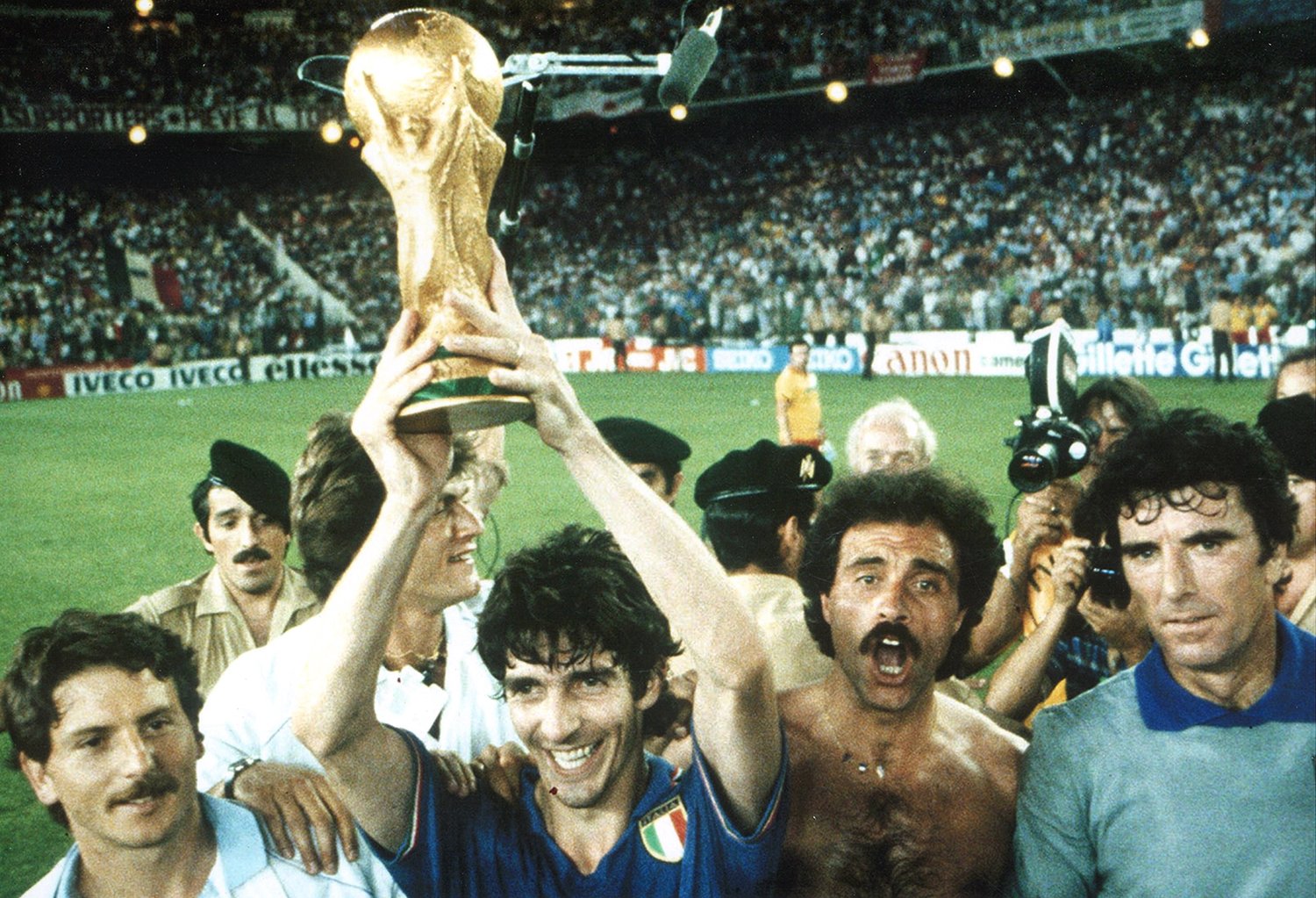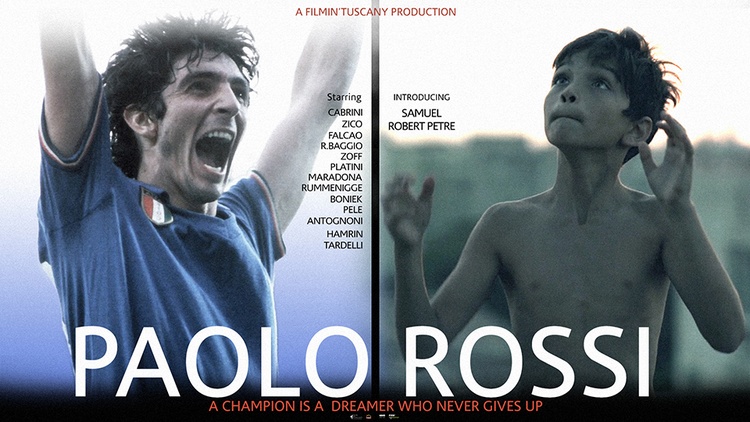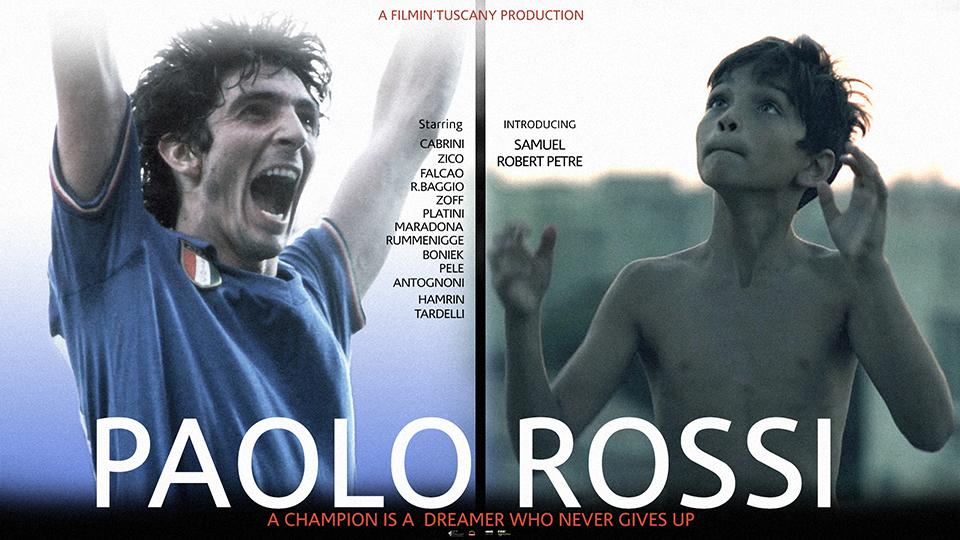Entitled Paolo Rossi: A Champion is a Dreamer Who Never Gives Up, the film celebrates the life and career of Rossi, who sadly lost his battle with lung cancer and passed away on December 9, 2020.
Rossi became a household name after leading the Italian team to victory at the 1982 World Cup in Madrid, where he finished as top scorer and was named best player.
For many in the community, the image of Rossi celebrating in his blue number 20 jersey, proudly raising his arms, is etched in their memory.
Rossi’s wife, Federica Cappelletti, said that was exactly how her husband wanted to be remembered.
“That pride and exultation was the result of all his determination,” she added.
Born in the Tuscan city of Prato, Rossi began playing football for an amateur team in the Santa Lucia area.
He went on to represent both Ambrosiana and Cattolica Virtus before he was noticed by Juventus’ manager, Luciano Moggi.
After three surgeries on his meniscus, Rossi was loaned to Como, where he made his Serie A debut during the 1975-1976 season.
The following season, Rossi was sold to Vicenza, where his career-defining transformation took place.
The champion became a goal machine under the tutelage of his coach, Giovan Battista Fabbri, and the club’s president, Giuseppe Farina, who encouraged the player to forgo his usual position of right wing in favour of becoming a deadly centre-forward.
Rossi scored 21 goals for Vicenza and won the Serie B Golden Boot, promoting his team to Serie A.
Juventus, who still part-owned the forward, finished behind Vicenza, and took steps to have Rossi return to their club.
In order to keep Rossi at Vicenza, Farina increased his salary from 8 million lire to an exorbitant 50 million lire.
Due to his exceptional trajectory, Rossi was called up by the Italian national team’s manager, Enzo Bearzot, to play for Italy at the 1978 World Cup in Argentina.
The centre-forward scored three goals, helping the Italians finish fourth in the competition.
In the documentary, Rossi is proud that a “provincial” represented Italy on the international stage.
Despite his stellar World Cup performance, Rossi struggled with injuries in the 1978-1979 season, and Vicenza was relegated back to Serie B.
The team loaned Rossi to Serie A side Perugia, despite Juventus’ continued efforts.
During his time with Perugia, Rossi was implicated in a betting scandal, thereafter known as Totonero.
As a result of his involvement, the player was given a three-year suspension, which was later reduced to two years.
Rossi then returned to Juventus in 1981, where he scored just one goal across three appearances.
Though Bearzot was criticised for his decision, the national team’s manager picked Rossi to represent the Azzurri at the 1982 World Cup in Spain.
Italo-Australians remember the sleepless nights, which culminated in watching Italy win 3-2 against Brazil, despite the unfavourable odds.
Rossi scored two goals against Poland in the semi-finals, allowing the Italians to win 2-0, before crowning off the tournament with a 3-1 win over the then European champions, Germany.
Throughout his brilliant career, Rossi’s victories were significant, even including his performance at the cursed final of the 1985 European Champions Cup in Brussels, where the Heysel Stadium disaster took place.
These moments are captured in the documentary, which was produced by Rossi and Cappelletti themselves.
The film contains testimonies from Pelé, Diego Maradona, Michel Platini, Zbigniew Boniek, Dino Zoff and Roberto Baggio, as well as footage from iconic moments including Rossi’s card game of scopone with Zoff, Franco Causio, Bearzot and Italian president Sandro Pertini.
Cappelletti, a journalist and writer, described the different sides of her husband, showcasing his social nature and his romanticism.
“We met at the launch of a book I’d written with two colleagues,” she said.
“I didn’t interview him, but a friend suggested I invite him.
“He accepted the invitation and managed to attend, despite the various delays and plane strikes.
“The first thing I noticed about him was his beautiful smile.”

The champion Paolo Rossi holds the World Cup after Italy’s 1982 victory in Spain
Rossi and Cappelletti’s love story is captured in the book, Per sempre noi due, published last November.
The book also shows the darker moments of Rossi’s life.
“It all started in March 2020, when we were returning from a trip to the Maldives,” Cappelletti said.
“I noticed that Paolo had lost a lot of weight, so we went to the doctor.”
Rossi’s illness was diagnosed at the end of the second COVID-19 lockdown in Italy; a tragedy that cemented the couple’s bond more than ever.
“During the lockdown it was always just the two of us and he entrusted himself entirely to me,” Cappelletti said.
“Though it was tiring, it was so nice to be together; he understood everything.”
When nothing further could be done for Rossi, Cappelletti invited their two daughters, Maria Vittoria and Sofia Elena, who were 11 and nine years old respectively, to visit their father in hospital.
Though the doctors advised against it, Cappelletti knew she was making the right decision.
“I knew everyone better than the doctors did,” she explained.
“I knew that Paolo wouldn’t have been happy without saying goodbye, and our daughters would never have forgiven me for keeping that chance from them.”
Though a devout Catholic, Cappelletti has struggled with Rossi’s tragic passing.
“I’m angry with God,” she said.
“The pope has told me this is normal, because suffering is a kind of prayer.”
Rossi’s impact on the world of football was immense.
His goals at the 1982 World Cup in Spain not only gave Italy the chance to be international champions but also galvanised a nation that was emerging from years of depression, allowing national pride to bloom once more.
Both Italians and expatriate Italian communities all over the world are grateful to Rossi for the moments of infinite joy he conjured up across the expanse of his memorable career.












